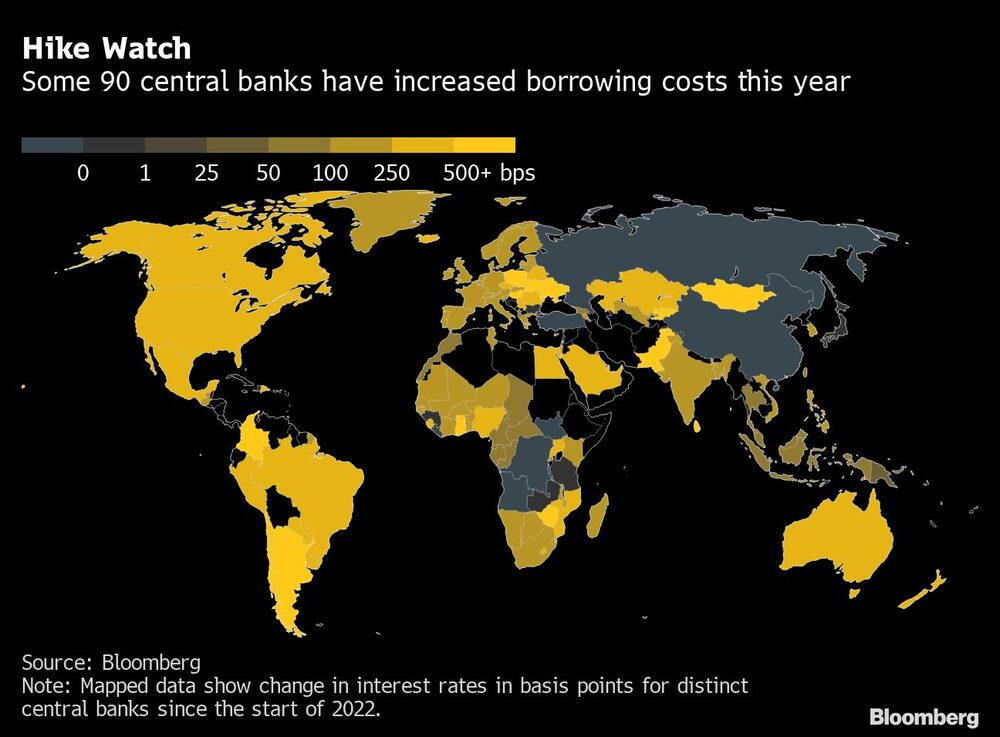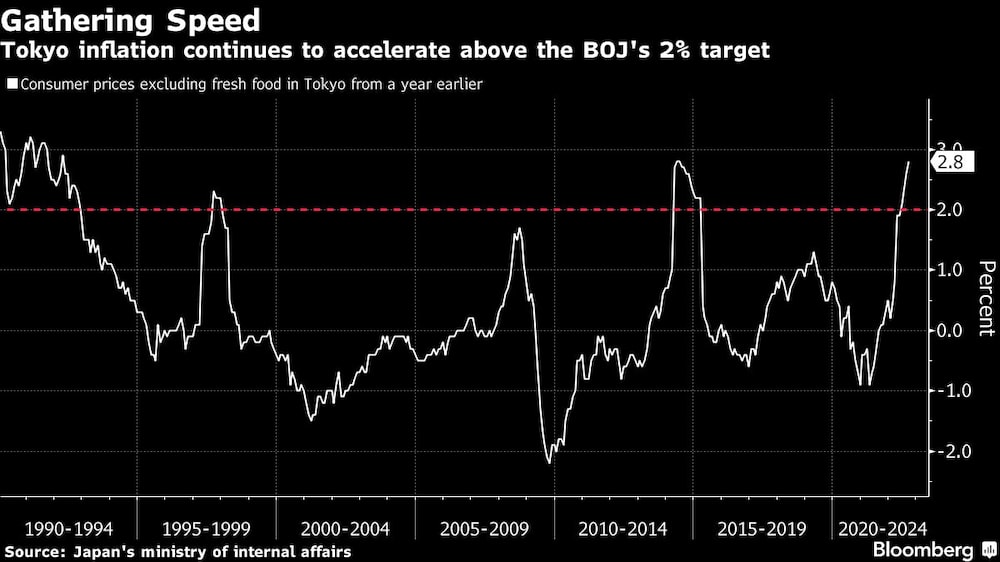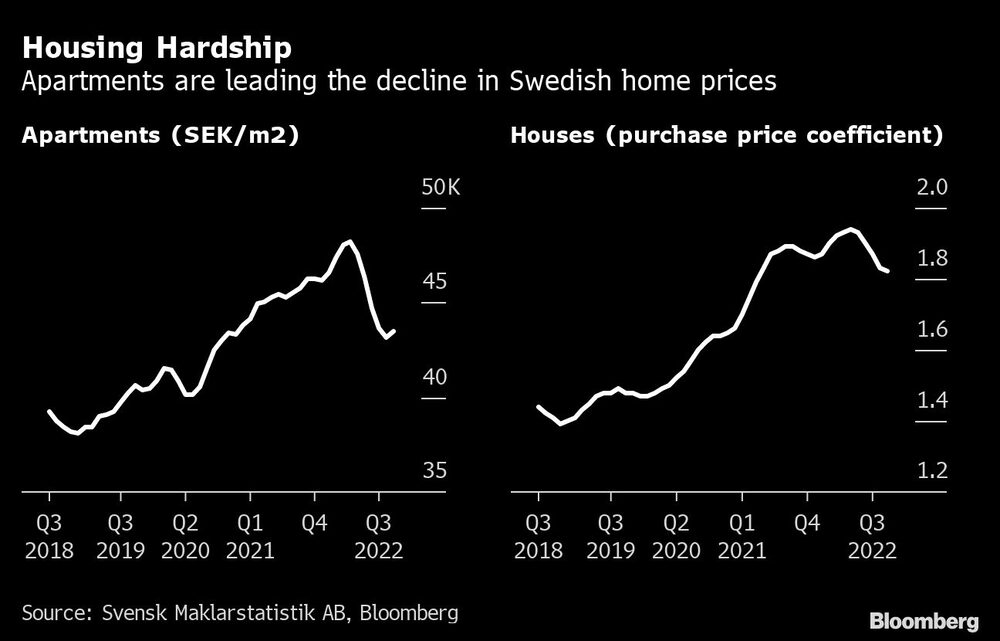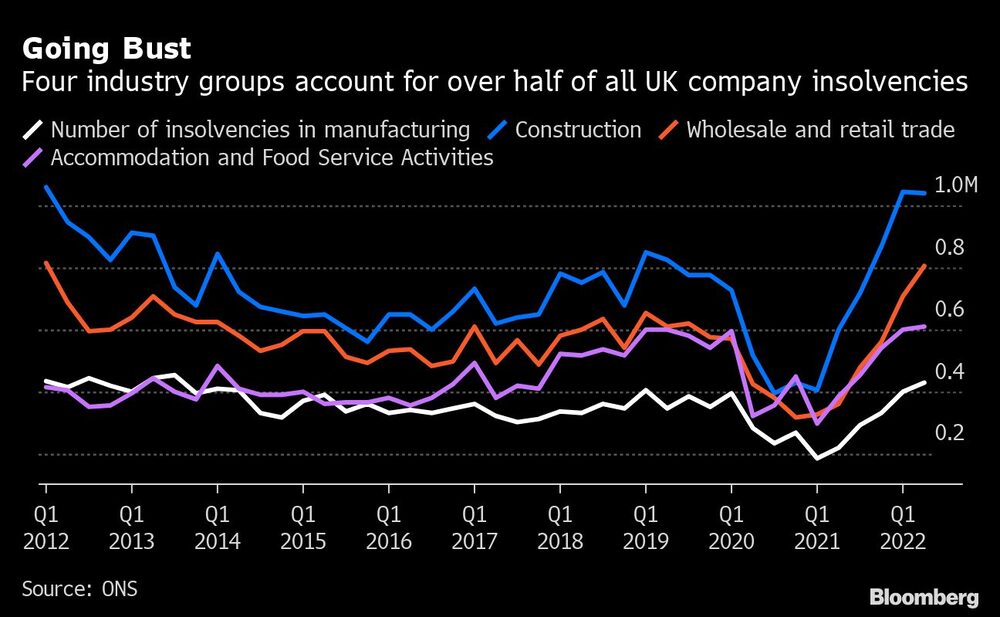Bloomberg — The US labor market remained on firm footing as the jobless rate returned to an historic low and payrolls rose at a solid clip, leaving the Federal Reserve on track to deliver yet another huge interest-rate hike.
In the UK, energy costs that are expected to skyrocket in the coming months have already wreaked havoc on the nation’s businesses in the wake of Russia’s invasion of Ukraine. Corporate insolvencies rose in the second quarter to the highest since 2009.
Inflation in Turkey and Tokyo accelerated to levels last seen in the 1990s, posing challenges to local leaders who have tried to keep monetary policy easy.
Here are some of the charts that appeared on Bloomberg this week on the latest developments in the global economy:
Emerging Markets

Turkish inflation accelerated last month to a level last seen in mid-1998, fueled by an experimental central bank policy that has chased away foreign investors and eroded the lira’s value. Consumer prices rose 83.5% in September on an annual basis, following a series of interest-rate cuts this year by central bank Governor Sahap Kavcioglu that threaten to pile even more pressure on inflation.

Brazilian assets jumped after President Jair Bolsonaro secured his way to a runoff election against Luiz Inacio Lula da Silva as investors cheered on the incumbent’s better-than-expected showing and bet his leftist challenger will be forced to moderate his stances in the second stretch of the race.
US

US employers continued to hire at a solid pace and the jobless rate unexpectedly fell to 3.5%, matching the lowest since 1969 and putting an inflation-focused Fed on course for another outsize interest-rate hike next month.

Supply-chain activity picked up for the first time since March, buoyed by elevated inventories even as transportation costs slid for a sixth straight month. While transportation capacity jumped, warehousing was limited.
World

Australia become the first major central bank to break with outsize interest-rate increases by delivering a quarter percentage-point move. Meantime, Israel’s central bank raised interest rates to the highest since 2011. New Zealand, Ghana and Peru also hiked, while Poland unexpectedly held rates steady.
Asia

Inflation in Tokyo accelerated for a fourth consecutive month to rise at the fastest pace since 1992 excluding the impact of tax hikes, and adding to the challenges for the Bank of Japan in communicating its need for inflation-supporting easing.

Australia staked out an outlier position among major central banks, becoming the first to break with outsize interest-rate increases as it delivered a quarter percentage-point move. Policy makers are mindful that their household sector is among the world’s most-indebted and the prevalence of variable mortgage rates means hikes are particularly potent.
Europe

The slide in Swedish home prices deepened in September amid signs the housing market was drying up as interest rate hikes and concerns over surging energy costs dented demand, according to the latest broker data. Apartment prices have declined 6% from a year earlier, while house prices -- which saw bigger gains during the pandemic as buyers sought more space to work from home -- have eased 3%.

UK corporate insolvencies in the second quarter reached their highest since 2009, with the soaring cost of energy cited as a primary concern for more than a fifth of companies. Construction, manufacturing, accommodation and food services, along with wholesale and retail accounted for over a half of all insolvencies in England and Wales in the first half of this year.
Read more on Bloomberg.com

